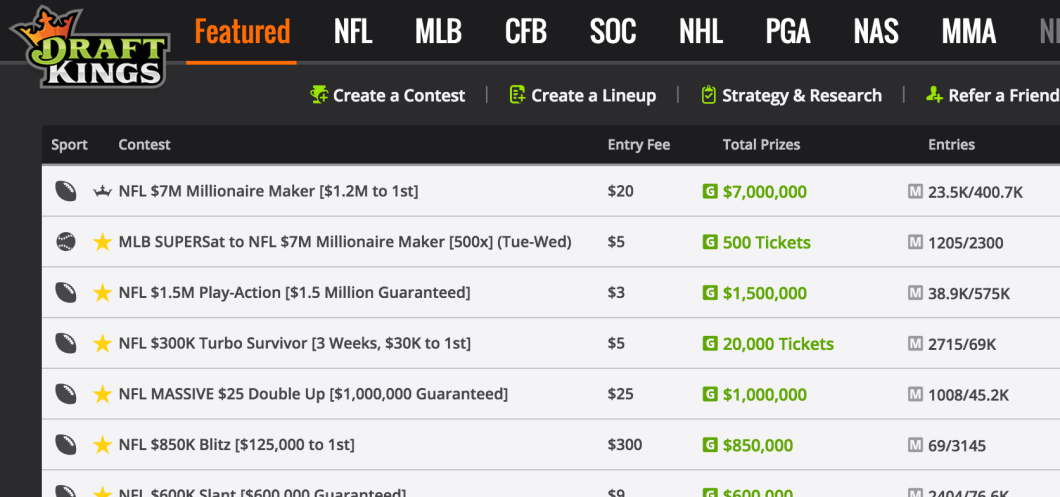Fantasy Sports Lobby Spending Millions To Push New Laws To Protect DraftKings, FanDuel
 With attorneys general in several states now saying that daily fantasy sports (DFS) sites DraftKings and FanDuel appear to violate state anti-gambling laws, the industry is fighting back with a huge nationwide lobbying push to change those laws.
With attorneys general in several states now saying that daily fantasy sports (DFS) sites DraftKings and FanDuel appear to violate state anti-gambling laws, the industry is fighting back with a huge nationwide lobbying push to change those laws.
The Unlawful Internet Gambling Enforcement Act [UIGEA] of 2006 bars financial services — banks, credit card companies, payment processors — from transacting business with online gambling sites. However, thanks to efforts from the professional sports leagues, that law includes a very specific carve-out for fantasy sports, which it labels as a game of “skill.”
However, the UIGEA also allows for individual states to bar fantasy sports if the state determines that such contests violate local anti-gambling laws. This is why, long before DraftKings and FanDuel began dominating TV ad breaks, people in Arizona, Washington, Iowa, Louisiana, and Montana were not allowed to take part in DFS tournaments.
Now with attorneys general from coast to coast questioning the local legality of DFS, the industry has gone on a lobbying spending spree.
The Wall Street Journal reports that DraftKings and FanDuel, along with the Fantasy Sports Trade Association have spent upwards of $10 million, hiring 78 lobbyists in 34 states. Compare that to a year earlier when the industry had a grand total of four lobbyists.
The goal is to push for new legislation that would, like the UIGEA, specifically exempt DFS operations from being defined as gambling. And the lobbyists appear to be making some headway, with about half of the states considering some sort of legislation — much of it introduced since the beginning of 2016 — that would allow the likes of DraftKings and FanDuel to continue operating without the looming specter of being outlawed.
Some states — including Iowa, where DFS is currently not allowed — are mulling over blanket exemptions for DFS from local gambling laws. The more popular route is legislation that includes some level of consumer protection and/or regulatory oversight.
But the lobbying can get ugly. In California, one assemblyman recently voted “no” on a pro-DFS piece of legislation, then quickly found himself the target of industry-sponsored radio ads encouraging voters to remove him from office.
Thus far, the only state where DFS has lodged a clear legislative victory is Kansas. Last summer, the state passed a piece of legislation related to the state lottery that includes an explicit carve-out for fantasy sports leagues.
Want more consumer news? Visit our parent organization, Consumer Reports, for the latest on scams, recalls, and other consumer issues.

